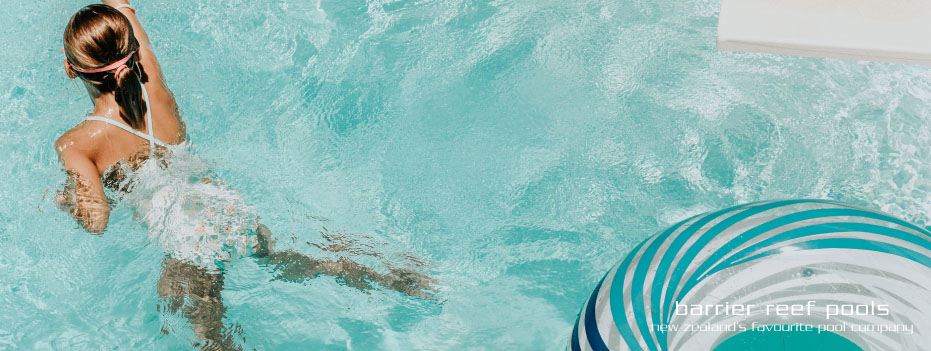Why You Should Actively Check For Winter Leaks In Your Pool Regularly
A lot of people dread the possibility of pool leaks forming in their fibreglass pools. Often, pool leaks can be repaired simply, and are inexpensive to deal with. But if you leave your pool leak problem alone, then you may end up needing to get an expensive repair job later on. If you do think that your fibreglass pool is leaking, then this isn't a problem that you can fix by yourself. Usually, you'll need to hire a professional to fix the leak for you. But before you can call a professional, you'll need to determine that the pool is leaking first. How do you do this?

It's not uncommon for pools to lose water because of evaporation. Water can also splash out when people are using the pool, and backwash wastewater also takes away from the water level of your pool. You could also find that your pool has gained water after a spell of rain. Ideally, no more than two inches of water should be added to your pool, every week. If you find yourself needing to add more water to your fibreglass pool, then this could be due to a leak. Pools are designed to keep water in. But with time, certain parts can deteriorate, and water can start leaking out through plumbing equipment, fittings, and even through the shell.
When is the pool leaking?
During winter, you’re likely to not end up using your fibreglass pool, unless you have a pool heater. This eliminates certain forms of water loss, such as people splashing the water out of the pool. If you find during winter, that there’s less water in your pool than you expected, then this could be due to a leak.
Sealants used in pools will deteriorate with time. This is irrespective of the season, so dealing with winter leaks isn’t all that uncommon. Do you think your pool has a leak? Then the first thing you should do is determine whether the pool is leaking while the equipment is switched on or off.
When the equipment is on
You’ll still need to run your pool pump during the winter, to prevent your pool from turning into a body of stagnant water. If you spot a leak while the pool pump is running, it could be a return leak on the pressure side. If this is the case, then the plumbing that’s on the pressure side is experiencing pressure.
As a result, what were small drips before could be gushing water now. You’ll need to check both the waste as well as the backwash line to ensure that the water is indeed running. If you lose about an inch of water, then this can mean you lose around 3-4 litres from your pool. Look for the area going downhill from the pool. Keep an eye out for weepers, especially where the leakage is surfacing from under the ground.
See if there are any wet or soft spots in the backyard, or where the plumbing goes back to the pool.

When the equipment is off
If you find a leak in your pool while the pool equipment is off, then the leak could be on the suction side. This involves the pipes which bring the water to the pump. It’s possible that when the filter is on, the plumbing that’s located on your pool’s suction side could be in vacuum. Air can enter through these voids, which may already have been leaking. You can also find air in the pump basket, or air in the filter tank itself.
What if the pool keeps leaking consistently?
If this is the issue, then the shell of your fibreglass pool could be the problem. But note that it doesn’t eliminate the possibility of something being wrong with the plumbing. If this is the case, then look for where in the pool the water is leaking out from.
If there are underwater lights in your fibreglass pool, then note that these can sometimes leak.
These are the parts of your fibreglass pool that you should pay careful attention to while checking for winter leaks:
- The skimmer assembly
- The metal fittings as well as the ladders
- The room floor of the pump
- The decking that’s surrounding the pool
During the winter, these are the parts that are the easiest to check. Even if your pool is covered, fittings like the skimmer basket may still have come loose. If you see water on the deck when your pool is tightly covered, then this could indicate that there’s a crack on the surface of the wall. Even if there is just a pinhole leak, it should still be fixed.
If you leave small cracks unfixed, then these can turn into bigger problems going forward. You should also check:

What areas you should check if your pool loses water during winter
The hot tub
If you have a hot tub or spa, then you should be able to use it during the winter as well. Often, the hot tub is connected to the actual pool. If this is the case, then the fittings as well as the skimmer in the hot tub will also need to be checked for leaks.
Anytime the pool or the spa is not being used, it should be kept covered. You’ll also need to maintain the water balance of your pool.
The pump system
Your pump system should be used for at least eight hours a day, even during the winter. If you see water on the floor of the pool room, then this could indicate that pool could lose water when the motor is working.
Conclusion
Ignoring your fibreglass pool during the winter season is a bad idea. This is because leaks can form in your pool at any time. This guide helps you learn more about what kinds of leaks can form in your pool, irrespective of the season. From leaks in the plumbing to leaks in the shell of the pool itself, they’ll need to be fixed before they can get worse. Use this guide to learn all about why you should look for leaks during winter, and get them fixed.
Why You Should Actively Check For Winter Leaks In Your Pool Regularly
A lot of people dread the possibility of pool leaks forming in their fibreglass pools. Often, pool leaks can be repaired simply, and are inexpensive to deal with. But if you leave your pool leak problem alone, then you may end up needing to get an expensive repair job later on. If you do think that your fibreglass pool is leaking, then this isn't a problem that you can fix by yourself. Usually, you'll need to hire a professional to fix the leak for you. But before you can call a professional, you'll need to determine that the pool is leaking first. How do you do this?

It's not uncommon for pools to lose water because of evaporation. Water can also splash out when people are using the pool, and backwash wastewater also takes away from the water level of your pool. You could also find that your pool has gained water after a spell of rain. Ideally, no more than two inches of water should be added to your pool, every week. If you find yourself needing to add more water to your fibreglass pool, then this could be due to a leak. Pools are designed to keep water in. But with time, certain parts can deteriorate, and water can start leaking out through plumbing equipment, fittings, and even through the shell.
When is the pool leaking?
During winter, you’re likely to not end up using your fibreglass pool, unless you have a pool heater. This eliminates certain forms of water loss, such as people splashing the water out of the pool. If you find during winter, that there’s less water in your pool than you expected, then this could be due to a leak.
Sealants used in pools will deteriorate with time. This is irrespective of the season, so dealing with winter leaks isn’t all that uncommon. Do you think your pool has a leak? Then the first thing you should do is determine whether the pool is leaking while the equipment is switched on or off.
When the equipment is on
You’ll still need to run your pool pump during the winter, to prevent your pool from turning into a body of stagnant water. If you spot a leak while the pool pump is running, it could be a return leak on the pressure side. If this is the case, then the plumbing that’s on the pressure side is experiencing pressure.
As a result, what were small drips before could be gushing water now. You’ll need to check both the waste as well as the backwash line to ensure that the water is indeed running. If you lose about an inch of water, then this can mean you lose around 3-4 litres from your pool. Look for the area going downhill from the pool. Keep an eye out for weepers, especially where the leakage is surfacing from under the ground.
See if there are any wet or soft spots in the backyard, or where the plumbing goes back to the pool.

When the equipment is off
If you find a leak in your pool while the pool equipment is off, then the leak could be on the suction side. This involves the pipes which bring the water to the pump. It’s possible that when the filter is on, the plumbing that’s located on your pool’s suction side could be in vacuum. Air can enter through these voids, which may already have been leaking. You can also find air in the pump basket, or air in the filter tank itself.
What if the pool keeps leaking consistently?
If this is the issue, then the shell of your fibreglass pool could be the problem. But note that it doesn’t eliminate the possibility of something being wrong with the plumbing. If this is the case, then look for where in the pool the water is leaking out from.
If there are underwater lights in your fibreglass pool, then note that these can sometimes leak.
These are the parts of your fibreglass pool that you should pay careful attention to while checking for winter leaks:
- The skimmer assembly
- The metal fittings as well as the ladders
- The room floor of the pump
- The decking that’s surrounding the pool
During the winter, these are the parts that are the easiest to check. Even if your pool is covered, fittings like the skimmer basket may still have come loose. If you see water on the deck when your pool is tightly covered, then this could indicate that there’s a crack on the surface of the wall. Even if there is just a pinhole leak, it should still be fixed.
If you leave small cracks unfixed, then these can turn into bigger problems going forward. You should also check:

What areas you should check if your pool loses water during winter
The hot tub
If you have a hot tub or spa, then you should be able to use it during the winter as well. Often, the hot tub is connected to the actual pool. If this is the case, then the fittings as well as the skimmer in the hot tub will also need to be checked for leaks.
Anytime the pool or the spa is not being used, it should be kept covered. You’ll also need to maintain the water balance of your pool.
The pump system
Your pump system should be used for at least eight hours a day, even during the winter. If you see water on the floor of the pool room, then this could indicate that pool could lose water when the motor is working.
Conclusion
Ignoring your fibreglass pool during the winter season is a bad idea. This is because leaks can form in your pool at any time. This guide helps you learn more about what kinds of leaks can form in your pool, irrespective of the season. From leaks in the plumbing to leaks in the shell of the pool itself, they’ll need to be fixed before they can get worse. Use this guide to learn all about why you should look for leaks during winter, and get them fixed.


